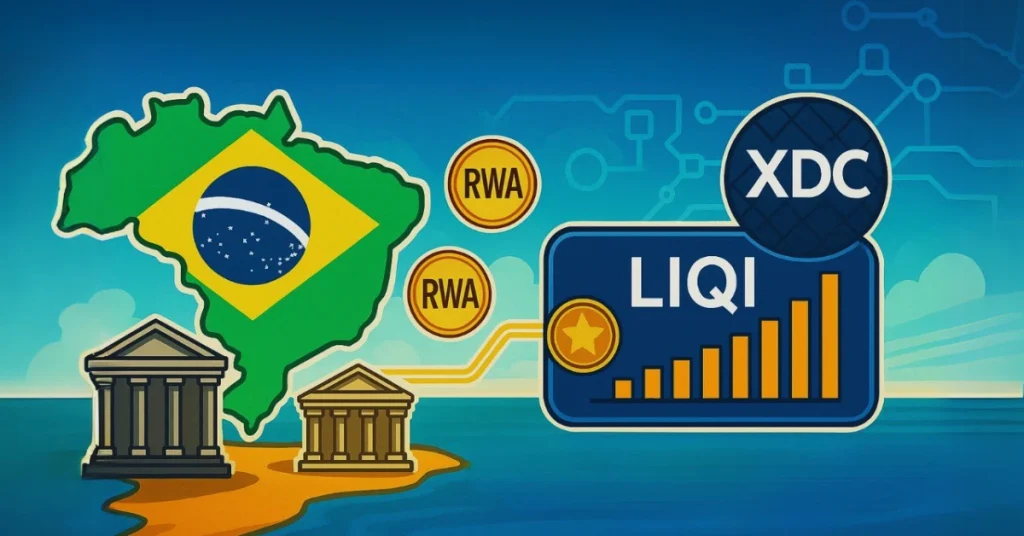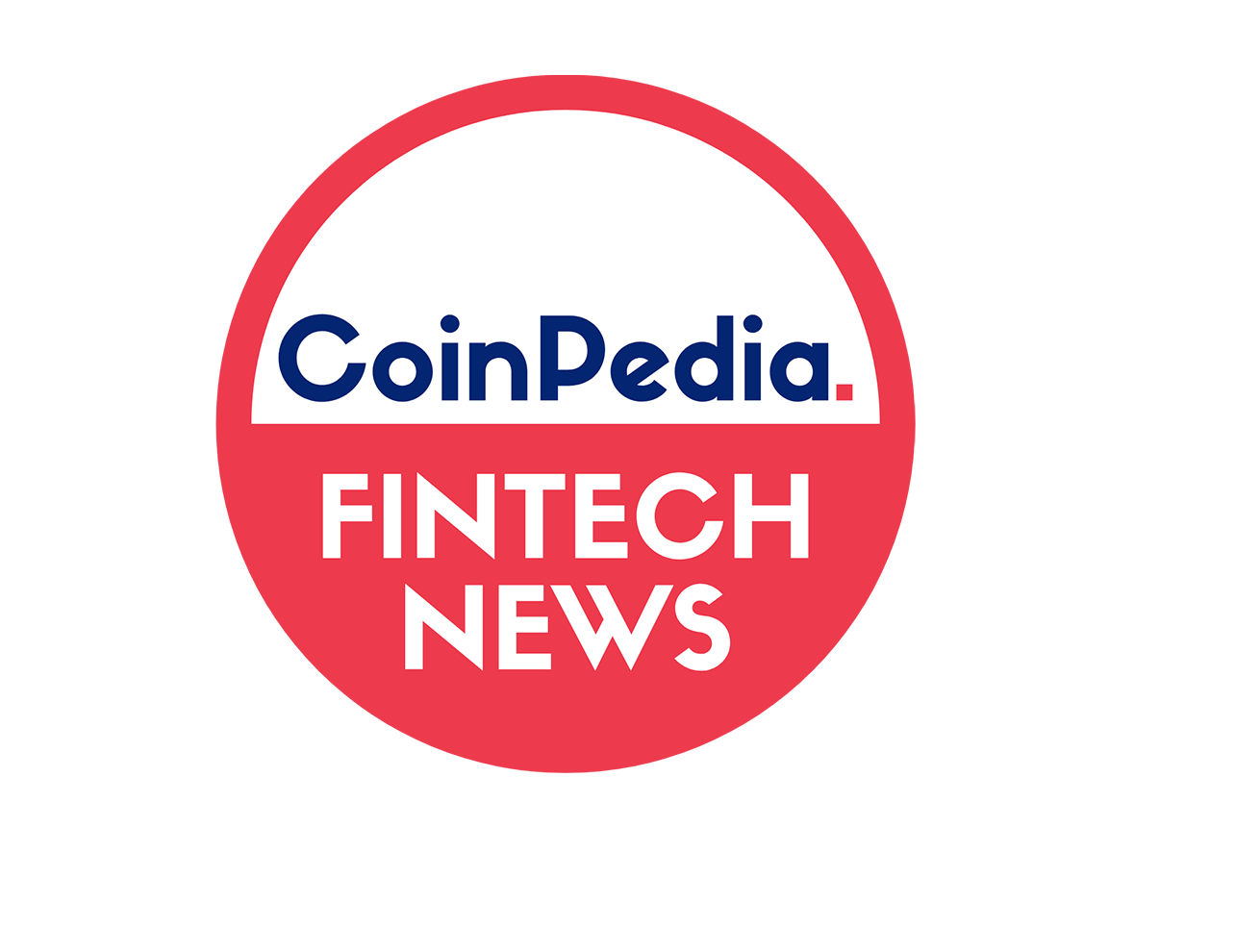How LIQI and XDC Are Turning Brazil into a Global RWA Tokenization Powerhouse with $500 Million in Tokenized Assets
0
0

The post How LIQI and XDC Are Turning Brazil into a Global RWA Tokenization Powerhouse with $500 Million in Tokenized Assets appeared first on Coinpedia Fintech News
Brazil has been quietly laying the groundwork to become a dominant player in the future of finance. With a new strategic partnership between fintech innovator LIQI and blockchain infrastructure provider XDC Network, the country is poised to take a leadership role in tokenizing real-world assets (RWAs).
This isn’t a speculative move. LIQI and XDC plan to issue up to $500 million in tokenized real-world assets over the XDC Network. The implications are massive for Brazil’s financial ecosystem and the global evolution of capital markets.
The Rise of Tokenized Real-World Assets
Tokenization is reshaping how financial assets are issued, traded, and owned. From credit rights to real estate and corporate debt, tokenized assets bring more liquidity, transparency, and efficiency to traditionally opaque or slow-moving markets.
According to Bank of America, the RWA tokenization market could exceed $16 trillion by 2030. This growth will depend heavily on infrastructure that can meet institutional requirements and fintech players who can navigate regulatory environments. That’s where LIQI and the XDC Network come in.
An Overview of LIQI?
LIQI is a Brazilian fintech startup with a clear focus: building regulated infrastructure to tokenize and trade digital financial instruments. Since its founding in 2021, LIQI has attracted investments from major players like Kinea Ventures (Itaú Unibanco’s VC arm), Oliveira Trust, and Honey Island by 4UM.
More importantly, LIQI has a track record. It has already led multiple institutional tokenization efforts in Brazil, including the launch of the country’s first tokenized investment in credit rights. It has also structured tokenized assets backed by receivables and private financial instruments, working with established banks like Banco BV and Itaú.
In short, LIQI isn’t just talking about tokenization. It’s doing it at scale and within regulatory frameworks.
What Makes the XDC Network Different?
On the blockchain side of the equation, the XDC Network offers the technical foundation to support institutional-grade tokenization. As a public Layer 1 blockchain, XDC stands out by combining the benefits of decentralization with enterprise-level performance.
XDC uses a delegated proof-of-stake (dPoS) consensus model that enables fast, low-cost, and energy-efficient transactions. Settlement times occur in seconds, and transaction fees are near zero critical factors when handling high-volume asset transfers.
Beyond performance, XDC also complies with ISO 20022 and MLETR standards, aligning it with global financial systems’ messaging and legal requirements. The network is involved in industry initiatives such as the Trade Finance Distribution (TFD) Initiative and is a member of the International Trade and Forfaiting Association (ITFA).
This mix of speed, compliance, and interoperability makes XDC a natural fit for institutional use cases and a logical partner for LIQI.
Brazil: From Emerging Market to RWA Tokenization Leader
Historically, Brazil has been seen as an emerging market that is still developing the systems needed for advanced financial instruments. But in recent years, its fintech sector has evolved rapidly, thanks to a proactive regulatory environment and a tech-savvy population.
With initiatives like open banking and the central bank’s digital real (DREX), Brazil has shown it can be innovative and compliant. This makes it fertile ground for tokenization to thrive.
The LIQI-XDC partnership taps into this momentum. It plans to tokenize a wide range of tangible assets, such as private credit, receivables, corporate debt, agribusiness instruments, and real estate, through already validated structures in accordance with Brazilian legislation.
The result? A modern alternative to traditional vehicles like FIDCs (Credit Rights Investment Funds), offering greater liquidity, transparency, and on-chain traceability. These tokens can be easily traded, audited in real-time, and accessed by a broader range of investors.
A $500 Million Signal to the Market
The planned issuance of up to $500 million in RWAs is one of the largest of its kind in Latin America. And it’s not just a one-off experiment. LIQI CEO Daniel Coquieri said the move will connect Brazil to the global flow of tokenized finance.
“We are structuring half a billion dollars in real-world assets directly on XDC,” Coquieri said. “This is one of the largest institutional operations ever conducted in Latin America.”
Initial issuances will begin within 90 days, with expansion plans already in motion. Issuers will span various industries and sizes, reflecting the broad applicability of RWA tokenization.
What This Means for Global Finance
The LIQI-XDC partnership is more than a regional story. It represents a blueprint for how fintech firms and blockchain networks can work together to build scalable, compliant, and efficient financial ecosystems.
For institutional investors, it signals that tokenization is moving beyond theory into action. For regulators, it demonstrates that blockchain-based financial instruments can operate within existing legal frameworks. For developing markets, it offers a path toward greater financial inclusion and participation in global capital flows.
Final Thoughts
Tokenization is no longer an edge-case application of blockchain technology. It’s becoming a core function of how financial systems will operate. With LIQI providing the regulatory and operational muscle and XDC delivering the blockchain infrastructure, Brazil is not just keeping pace with this trend; it’s leading it.
The global financial world will be watching as the first ‘issuances’ roll out. The success of this partnership will raise the bar for what’s possible in capital markets everywhere.
0
0
 Manage all your crypto, NFT and DeFi from one place
Manage all your crypto, NFT and DeFi from one placeSecurely connect the portfolio you’re using to start.


